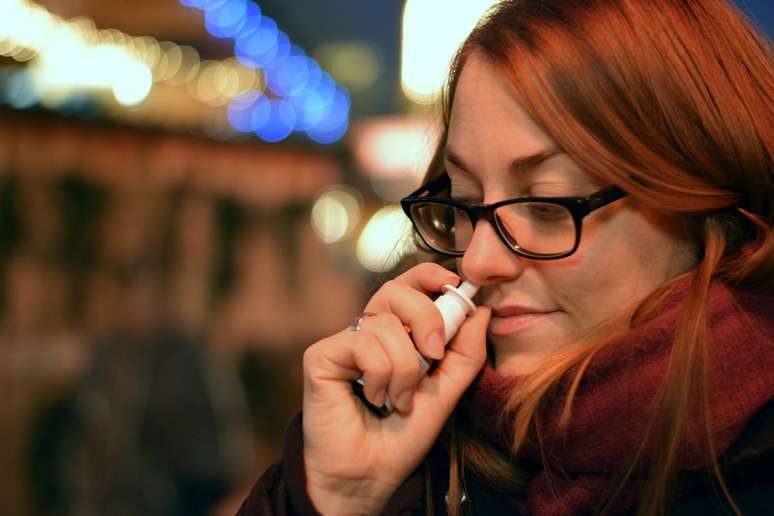Considered an ally in the fight against congestion, medicine can become a villain
Nasal decongestants, powerful allies in the fight against nasal congestion, can become silent villains if used inappropriately. Its prolonged use, beyond the recommended time, leads to dependence and addiction.
The main culprit for this effect is vasoconstriction, the mechanism of action of decongestants that narrows the blood vessels in the nose, unblocking the airways. With frequent use, the vessels become accustomed to the contraction induced by the drug, losing the ability to dilate naturally.
As explained by the otolaryngologist of the Alfa Instituto de Comunicação e Audição, Dr. Fernão Bevilacqua Earth you: “When a person realizes that the decongestant clears their nose, almost instantly, it ends up encouraging them to want to take more doses of the spray, which makes them addicted.”
Symptoms of addiction
It is common that, when stopping the use of the decongestant after frequent use, the vessels dilate excessively, causing even more intense and persistent nasal congestion, leading the individual to seek the decongestant again, creating a vicious circle.
Additionally, continued use irritates and dries out the nasal mucosa, making it more susceptible to inflammation and bleeding, causing nasal dryness.
In more severe cases, addiction can lead to partial or total loss of smell.
How to prevent addiction?
To avoid becoming dependent on the drug, it is important to follow the instructions for use of the medicine, using the decongestant only for the time recommended on the package leaflet, generally 3 to 7 days.
You can also opt for alternatives that do not carry this risk, such as nasal saline solutions or seawater sprays that can help unblock the nasal passages without causing addiction.
According to Dr. Fernão Bevilacqua, the process of drug withdrawal occurs gradually and it may be necessary to use medications to relieve mucosal sensitivity.
“An ENT doctor may suggest corticosteroids, nasal lavage, or even oral medications such as anti-inflammatories and antihistamines, depending on the case. But to stop immediately, the best way is to switch to saline,” says the specialist.
Source: Terra
Ben Stock is a lifestyle journalist and author at Gossipify. He writes about topics such as health, wellness, travel, food and home decor. He provides practical advice and inspiration to improve well-being, keeps readers up to date with latest lifestyle news and trends, known for his engaging writing style, in-depth analysis and unique perspectives.







